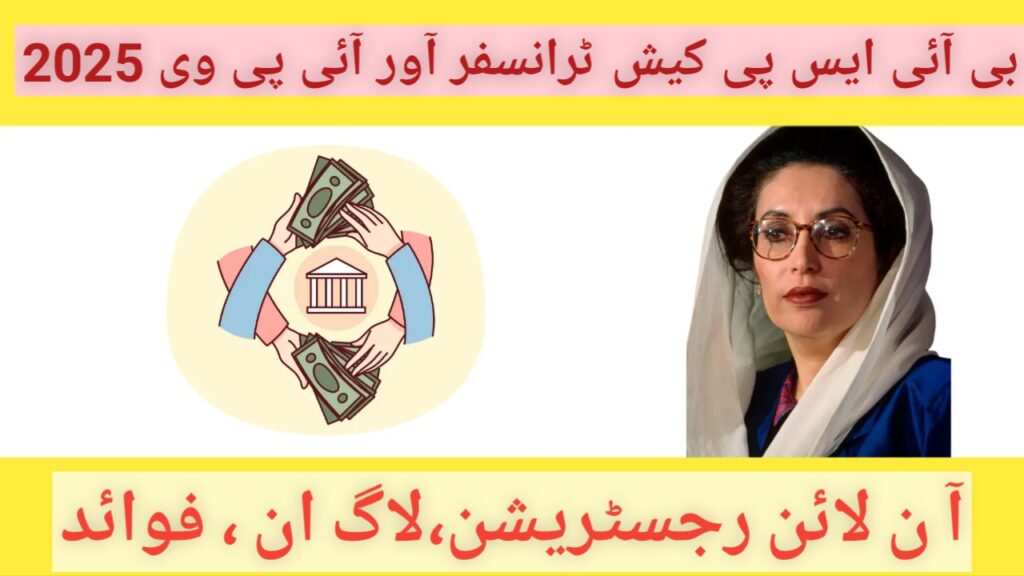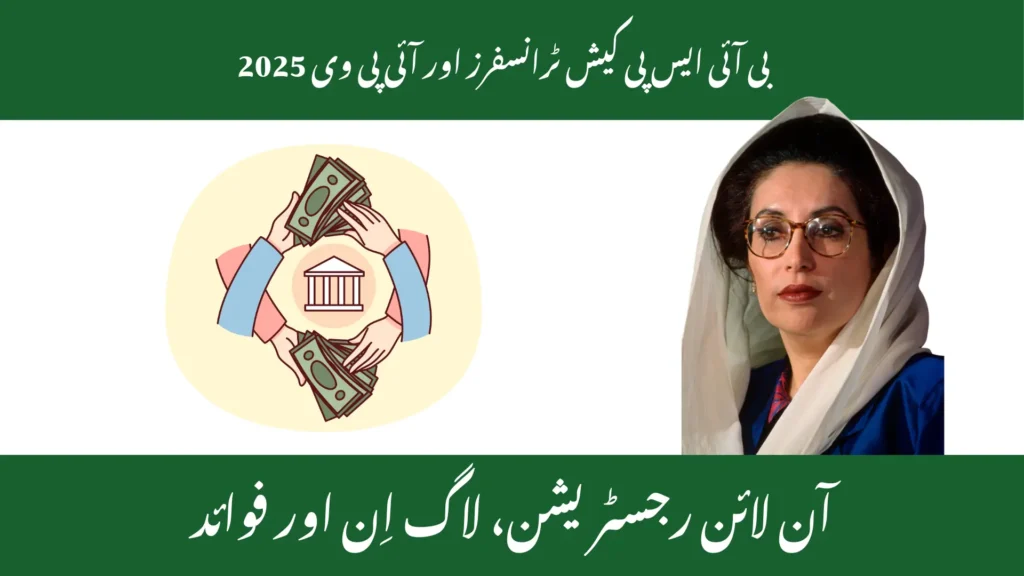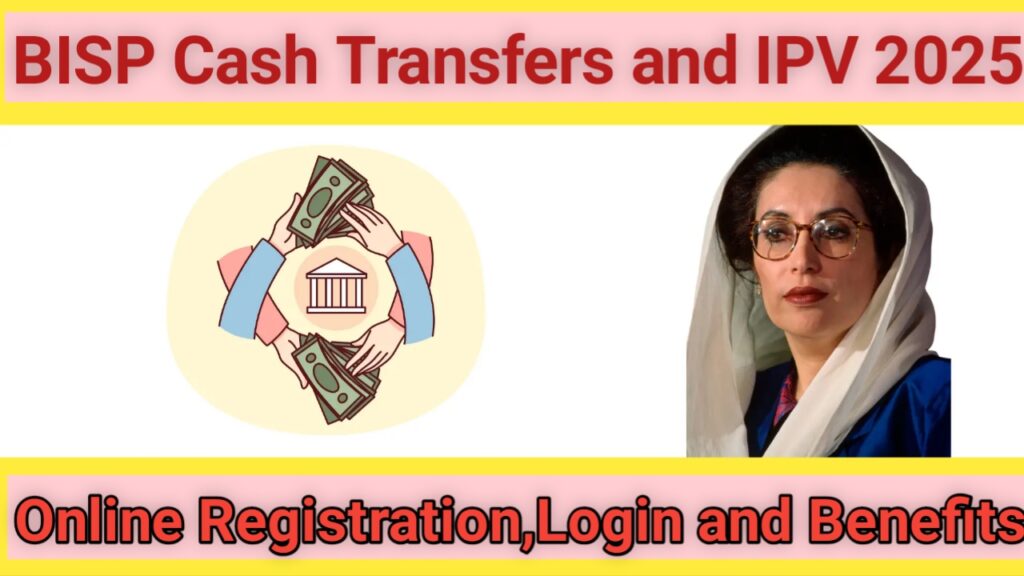
BISP Cash Transfers & IPV 2025 Cash transfer programs are globally recognized powerful tools that reduce poverty, improve household well-being, and empower women in meaningful ways. In Pakistan, the BISP has become an impactful social safety net, reaching millions of vulnerable families with financial aid. From my field visits, I’ve seen how a small flow of money through such a systestm not only provides food security but also dignity, as mothers gain a stronger voice in household matters BISP Cash Transfers & IPV 2025.
These transfers also contribute to reducing Intimate Partner Violence (IPV) by enhancing decision-making power for women and decreasing stress within homes. When resources are assured, daily conflicts over scarcity lessen, and relationships improve. I have personally observed how even modest, predictable support changes the family dynamic, helping women participate in key decisions. The BISP Cash Transfers in 2025 stand out as an integrated model—combining economic relief with social change—demonstrating how programs can go beyond poverty reduction to strengthen resilience at the core of family life.
What is BISP Cash Transfers & IPV 2025?
The Benazir Income Support Programme (BISP), launched in 2008, was created to support poor families in Pakistan through a cash transfer system that delivers direct payments to women. This unique approach has been instrumental in empowering them both financially and socially, while providing unconditional financial support to millions of Pakistani households. From my visits to villages, I’ve seen how even modest flows of money can shift household decision-making, creating a legacy of resilience and inclusion.
In relation to IPV (Intimate Partner Violence), such efforts are even more profound. Studies show women receive transfers, their stress decreases, and family relationships improve as the likelihood of abuse in households drops. This illustrates how BISP cash transfers are more than welfare—they are a pathway to dignity, stability, and stronger communities.
Benefits of BISP Cash Transfers
BISP Cash Transfers & IPV 2025 are more than money. They have long-term effects on families and communities. Below is a simple table highlighting the key benefits:
| Benefit | How It Helps |
| Reduced Financial Stress | Families can pay for food, bills, healthcare, and children’s education |
| Women Empowerment | Women gain control over household decisions and finances |
| Improved Family Relationships | Less stress means fewer conflicts between family members |
| Social Recognition | Women who contribute financially gain respect in the household and community |
| Reduced IPV Risk | Financial independence reduces the chances of domestic abuse |
These benefits explain why BISP 2025 is seen as a strong protective mechanism against IPV.
How to Register Online for BISP Cash Transfers & IPV 2025
Online registration for BISP Cash Transfers & IPV 2025 is simple and designed to reach as many vulnerable women as possible. Here’s a step-by-step guide:
Online registration platform
- Visit the Official Portal: Go to BISP Online Registration
- Select Program Type: Choose BISP Cash Transfers & IPV 2025
- Enter CNIC Details: Fill in your CNIC number and personal details accurately
- Submit Application: Click the submit button to register your request
- Verification: BISP officials will verify your information through field surveys or digital verification
- Confirmation: Successful applicants receive confirmation via SMS or BISP helpline
Tip: Make sure your CNIC is valid and linked with your mobile number for easy communication.
BISP Cash Transfers 2025 Login Process
Existing BISP beneficiaries can login to the BISP portal to check payment status, update information, or access IPV support. Follow these steps:
- Visit Login Page: BISP Login Portal
- Enter CNIC & Password: Use your registered CNIC number and password
- Captcha Verification: Fill in the security captcha
- Access Dashboard: Check your cash transfer status, payment history, and IPV-related resources
Note: If you forget your login details, you can reset your password using your registered mobile number.
Why BISP Cash Transfers Matter Beyond Financial Aid
Cash transfers do not only provide monetary support—they reshape family dynamics:
- Reduce Financial Stress: Less conflict over household expenses
- Empower Women: Women make decisions about resource allocation
- Improve Emotional Well-Being: Families experience fewer arguments and better communication
- Enhance Social Status: Women contributing financially gain respect in society

BISP’s approach of direct transfers to women ensures that support reaches those who can use it most effectively, both for financial security and social empowerment.
Risks of Sudden Discontinuation of BISP Payments in 2025
Halting BISP cash transfers abruptly can have serious consequences. Here’s how stopping payments affects families:
Direct cash payments
| Impact | Effect |
| Return of Financial Stress | Families lose stable income, bills remain unpaid, food insecurity rises |
| Loss of Women’s Autonomy | Women lose decision-making power; men regain control |
| Household Strain | Increased disputes and potential rise in IPV |
| Unequal Outcomes | Families without savings or skills fall back into poverty |
Global Evidence: Cash Transfers & IPV
International studies confirm the protective effects of cash transfers:
Money transfer system
- Bangladesh: Nutrition-linked cash aid reduced IPV during program implementation
- Latin America: Conditional cash transfers tied to children’s education lowered family conflicts
- Sub-Saharan Africa: Direct transfers to women were more effective than household-based payments
Lesson Learned: BISP Cash Transfers & IPV 2025 Cash transfers are most effective when combined with empowerment, skill-building, and social support.
How Pakistan Can Sustain BISP Impact in 2025
To maintain positive outcomes, Pakistan should focus on:
- Keeping Women at the Center: Ensure payments continue to go to women
- Phase-Out Strategies: Gradually reduce support instead of sudden discontinuation
- Empowerment Programs: Provide skills training and financial literacy
- Complementary Support: Offer counselling, health services, and education support
- Monitoring: Continuous evaluation of poverty and IPV trends

Implementing these strategies ensures thatBISP Cash Transfers & IPV 2025remains a tool for both financial relief and long-term empowerment.
Conclusion
BISP Cash Transfers & IPV 2025 is not just a financial program—it is a life-changing initiative for millions of women in Pakistan. By reducing poverty, empowering women, and strengthening families, it also acts as a shield against IPV.
In reflecting on the impact of the BISP Cash Transfers & IPV 2025, it becomes clear that the program is more than just an economic intervention—it is a social transformation tool reshaping the lives of millions of Pakistani families. Since its inception in 2008, the Benazir Income Support Programme has stood out as a unique cash transfer system by directing payments specifically to women, thereby strengthening their role within households and communities. By combining financial and social empowerment, BISP has helped break cycles of dependency, offering families not only food security but also the confidence to invest in education, health, and long-term well-being.
You can also read this CM Punjab School Meal Scheme 2025
FAQs
Q1: How do BISP cash transfers reduce IPV?
They reduce financial stress, give women decision-making power, and improve family harmony.
Q2: What if BISP payments stop suddenly?
Families may face financial stress, women lose autonomy, and IPV risk increases.
Money transfer system
Direct cash payments
Q3: Can benefits last after payments end?
Yes, if combined with savings, skill-building, or community support programs.
Q4: How to register for BISP Cash Transfers & IPV 2025 online?
Visit BISP Official Portal, enter CNIC, and submit your application.
Q5: How can I check my BISP payment status?
Login to the using your CNIC and password to view payment history and updates.
Direct cash payments
Conclusion
BISP Cash Transfers & IPV 2025 is not just a financial program—it is a life-changing initiative for millions of women in Pakistan. By reducing poverty, empowering women, and strengthening families, it also acts as a shield against IPV.





Leave a Reply